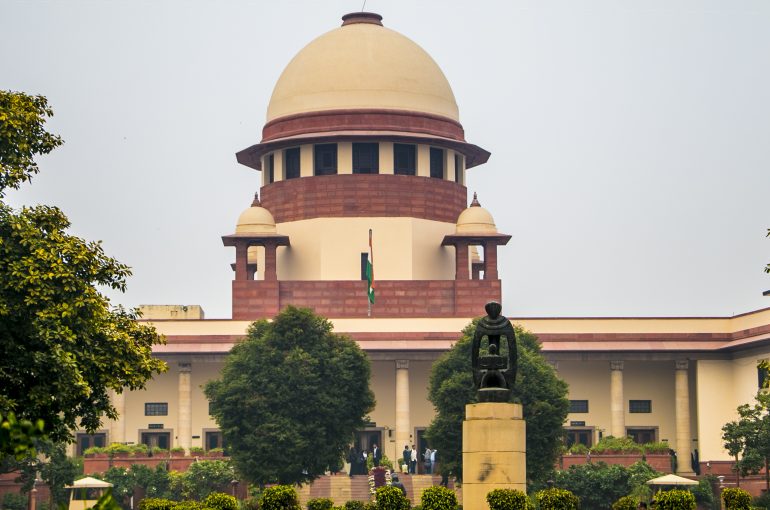JUDICIAL PRUDENCE IN QUASHING UNFOUNDED CHEATING ALLEGATIONS AGAINST EDUCATIONAL INSTITUTIONS

INTRODUCTION
In Jupally Lakshmikantha Reddy v. State of Andhra Pradesh & Anr. [SLP (Crl.) No. 9744 of 2024], the Supreme Court of India, comprising Justices B.V. Nagarathna and Joymalya Bagchi, delivered its Judgment on 10th September 2025. The Appeal arose from the High Court of Andhra Pradesh’s Order dated 18.04.2024, which had refused to quash criminal proceedings against the Appellant under Section 420 of the Indian Penal Code (IPC), 1860. The Apex Court, on careful examination of the facts and legal principles, quashed the criminal proceedings, highlighting the necessity of establishing dishonest inducement for the offence of cheating.
BRIEF FACTS
The Appellant, JVRR Education Society, had been running a college since 2016 from a building of height 14.20 metres. In 2018, a Complaint was lodged by the District Fire Officer alleging that the college had obtained recognition from the State Education Department by submitting a forged No Objection Certificate (NOC) purportedly issued by the Fire Department.
An FIR was registered under Sections 420, 465, 468 and 471 IPC, corresponding to CC No. 303/2020. The Charge Sheet alleged that the Appellant had created and used a forged NOC to defraud the Education Department. However, investigations could not recover the original document.
Importantly, under Rule 4.6.1.4 of the National Building Code of India, 2016, a fire NOC is not required for educational buildings below 15 metres in height. Consequently, the Appellant had earlier filed WP No. 14542/2018, in which the High Court directed the Education Department to renew affiliation without insisting on a fire NOC.
ISSUES OF LAW
- Whether the alleged submission of a forged NOC constitutes cheating under Section 420 IPC.
- Whether offences under Sections 465, 468 and 471 IPC for forgery and using forged documents are made out.
- Whether the High Court erred in refusing to quash the criminal proceedings at the preliminary stage.
ANALYSIS
Cheating under Section 420 IPC
The Supreme Court reiterated the essential ingredients of cheating, which require:
- A false representation known to be false; and
- Dishonest or fraudulent inducement, causing wrongful gain or loss.
The Court emphasized that mere deception is insufficient; there must be a causal link between the false representation and the act or omission induced. In this case, the Appellant’s building was below 15 metres, and fire NOC was legally not required. Hence, the alleged submission of a fake NOC could not have influenced the Education Department’s decision.
Citing Dr. Sharma’s Nursing Home v. Delhi Administration, (1998) 8 SCC 745, the Court observed that deception alone does not constitute cheating; dishonest inducement is necessary. Similarly, in Hridaya Ranjan Prasad Verma v. State of Bihar, (2000) 4 SCC 168, the Court held that intention is the gist of the offence.
Forgery under Sections 465, 468, 471 IPC
The Appellant was also accused of forgery. The Court referred to Sheila Sebastian v. R. Jawaharaj, (2018) 7 SCC 581, holding that to attract Section 465 IPC, the accused must have manufactured the forged document. In the present case, there was no evidence connecting the Appellant to the creation of the NOC. Sections 468 and 471 were similarly inapplicable, as the essential mens rea was absent.
Judicial Reasoning
The Supreme Court criticized the High Court for failing to consider the legal non-requirement of the fire NOC and the absence of dishonest inducement, which are fundamental to the offence of cheating. The Judgment reinforced that criminal proceedings cannot be sustained based solely on an unnecessary or irrelevant document, especially when statutory provisions exempt its necessity.
CONCLUSION
The Supreme Court quashed the criminal proceedings under Section 420 IPC against the Appellant, highlighting that:
- Criminal liability for cheating or forgery requires dishonest intention and inducement.
- Mere submission of a document, which does not influence the outcome and is legally non-essential, cannot attract penal consequences.
- The Judgment safeguards educational institutions from harassment through frivolous criminal proceedings when statutory compliance is absent but legally unnecessary.
This case underscores the judicial prudence in distinguishing technical irregularities from criminal misconduct, reaffirming the principle that criminal law is not to be used as a tool of intimidation where essential ingredients of the offence are missing.
SARTHAK KALRA
Senior Legal Associate
The Indian Lawyer & Allied Services
Please log onto our YouTube channel, The Indian Lawyer Legal Tips, to learn about various aspects of the law. Our latest Video, titled “Legal Aspects of Exports in India | Export Laws Explained | Advocate Sushila Ram Varma|” can be viewed at the link below:
https://www.youtube.com/watch?v=2PWPKz1yr-E&t=71s





































Leave a Reply